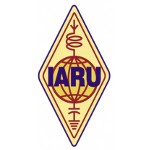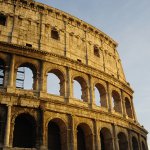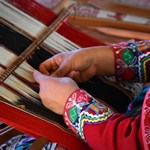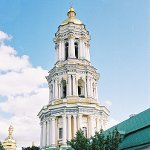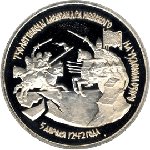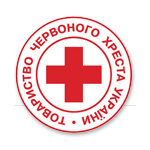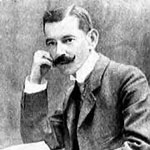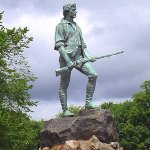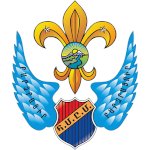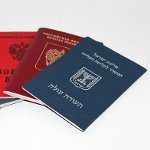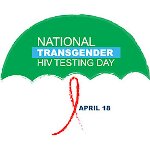Holidays Calendar for April 18, 2016
Independence Day in Zimbabwe is celebrated on April 18. It commemorates the country’s independence from the United Kingdom in 1980.
World Amateur Radio Day is an annual observance held on April 18. It marks the anniversary of the establishment of the International Amateur Radio Union in 1925.
International Day for Monuments and Sites is an annual observance held on April 18. It was officially established by UNESCO in 1983, following the initiative of the International Council on Monuments and Sites (ICOMOS).
World Artisan Day, sometimes referred to as International Artisan Day, is a global celebration of artisans held annually on April 18. It was created by NOVICA, a US-based fair trade marketplace, and is supported by UNICEF.
On April 18, Iran celebrates Army Day. This annual holiday commemorates the anniversary of the establishment of the Islamic Republic of Iran Army.
In Japan, April 18 is known as Invention Day. It was established in 1954 by the Ministry of International Trade and Industry of Japan and has been celebrated each year ever since.
The Day of Historic and Cultural Monuments in Ukraine is celebrated on April 18, coinciding with UNESCO’s International Day for Monuments and Sites. The observance was officially established by President Leonid Kuchma in 1999.
April 18 is one of the Days of Military Honor in Russia. It celebrates the victory of the Republic of Novgorod over the Teutonic Knights in the Battle of Ice in 1242, therefore the observance is commonly referred to as Battle on the Ice Day.
Battle of Dybbøl Day is a flag-flying day in the Danish military. It marks the anniversary of the key battle of the Second Schleswig War, in which Denmark was severely defeated by Prussia. The battle was fought on April 18, 1864.
The International Red Cross and Red Crescent Movement was founded in 1863 in Geneva as the International Committee of the Red Cross. It is an international humanitarian movement that strives to protect human life and health. Many countries have their own Red Cross Societies that are part of the movement. For example, the Ukrainian Red Cross Society was founded on April 18, 1918.
José de Diego’s birthday (Natalicio de José de Diego) is an official memorial day in Puerto Rico, dedicated to a renowned Puerto Rican poet and political leader. José de Diego was born on April 16, but his birthday is usually celebrated on the third Monday of April.
Patriots’ Day is observed in several U.S. states on the third Monday in April to commemorate the first battles of the American Revolutionary War (the Battles of Lexington and Concord, and the Battle of Menotomy). The first state to celebrate it was Massachusetts.
If you loved animal crackers as a child and still love them as an adult, which is nothing to be ashamed of, by the way, don’t forget to celebrate National Animal Crackers Day on April 18.
If you want to kill two birds with one stone – let off come steam and enjoy delicious candy – you should celebrate National Piñata Day. This amazing holiday was created to honor colorful containers filled with candy that are primarily associated with Mexican culture.
Coma Patient Day (Dzień Pacjenta w Śpiączce) is an official holiday declared by parliamentary resolution in Poland. It was proclaimed by the Sejm of the Republic of Poland on November 23, 2012 and has been celebrated on April 18 every year since 2013.
Armenian Scouts celebrate Scouts’ Day on April 18. On this day in 1997, the National Scout Movement of Armenia was officially admitted to the World Organization of the Scout Movement.
Aliyah Day (Yom HaAliyah) is an official holiday in Israel celebrated on 10 Nisan and observed in schools on 7 Cheshvan. It celebrates the immigration of Jews from the diaspora to the Land of Israel.
Adult Autism Awareness Day, also known as National Adult Autism Awareness Day, is observed annually on April 18. It was created to provide support for adults with autism and promote inclusiveness in education, employment, and every area of daily life.
National Transgender HIV Testing Day is one of many national HIV awareness days that exist in the United States. Observed every year on April 18, it highlights the importance of routine HIV testing and access to HIV-related resources for transgender, non-binary, and gender nonconforming individuals.
Festivals for April 18, 2016
- TRT International April 23 Children’s Festival in Antalya, Turkey
- Sydney Royal Easter Show in Sydney, Australia
- New Horizon International Youth Festival of Short Films and Animation in Voronezh, Russia
- Chartres en lumières (Chartres in Lights) in Chartres, France
- Weifang International Kite Festival in Weifang, China
- Beijing International Film Festival in Beijing, China
- Georgia Renaissance Festival in Fairburn, USA
- Fumetto in Lucerne, Switzerland
- Uzhhorod Cherry Blossom Festival in Uzhhorod, Ukraine
- Fiesta San Antonio in San Antonio, USA
- Imagine Film Festival in Amsterdam, Netherlands
- St. Maarten Carnival in Philipsburg, Sint Maarten
- Tribeca Film Festival in New York, USA
- Trans-Siberian Art Festival in Novosibirsk, Russia
- Scarborough Renaissance Festival in Waxahachie, USA
This Day in History
- 2019 A cholera outbreak was reported at the Nairobi Hospital. Nairobi county was put on high alert as county health officials warned of the epidemic*.
* sponsored link - 2007 A series of bombings, two of which were suicides, occurred in Baghdad. 198 people were killed and 251 were injured.
- 2002 Died: Thor Heyerdahl, Norwegian ethnographer, best known for his Kon-Tiki expedition from South America to the Polynesian islands on a hand-build raft.
- 1992 Born: Chloe Bennet, American actress known for her roles as Daisy Johnson / Quake in Agents of S.H.I.E.L.D. and as Yi in Abominable and Abominable and the Invisible City.
- 1990 Born: Britt Robertson, American actress known for her roles in the films The First Time and Tomorrowland, as well as her television roles on Under the Dome and Girlboss.
- 1989 Born: Alia Shawkat, American actress known for her roles as Maeby Fünke in Arrested Development, Dory Sief in Search Party, and Gertie Michaels in The Final Girls.
- 1988 Born: Vanessa Kirby, English actress who rose to international prominence with her portrayal of Princess Margaret in the Netflix drama series The Crown.
- 1988 The United States launched Operation Praying Mantis against the Iranian naval forces. This battle became the largest one since World War II.
- 1987 Born: Rosie Huntington-Whiteley, English model and actress. She is best known for her work for the lingerie retailer Victoria's Secret, formerly being one of their brand "Angels".
- 1984 Born: America Ferrera, American actress and producer, best known for the role as Betty Suarez in the TV series Ugly Betty. It brought her the Golden Globe Award for Best Actress and international recognition.
- 1981 The longest professional baseball game began in Pawtucket, Rhode Island. The game was suspended at 4 a. m. the next morning and finally completed on June 23.
- 1976 Born: Melissa Joan Hart, American actress known for her starring roles in the television series Clarissa Explains It All, Sabrina the Teenage Witch, and Melissa & Joey.
- 1974 Born: Edgar Wright, English director and screenwriter, best known for his comedic Three Flavours Cornetto film trilogy (Shaun of the Dead, Hot Fuzz and The World's End).
- 1971 Born: David Tennant, Scottish actor known for his roles as the Tenth and Fourteenth Doctor in Doctor Who, DI Alec Hardy in Broadchurch, Kilgrave in Jessica Jones, Crowley in Good Omens, and many more.
- 1963 Born: Conan O'Brien, American television host, comedian, writer, and producer. He is best known for having hosted late-night talk shows for almost 28 years from 1993 to 2021.
- 1956 Born: Eric Roberts, American actor, the elder brother of the actress Julia Roberts. He had roles in more than 250 films, and won a Golden Globe Award and an Academy Award.
- 1955 Died: Albert Einstein, German-American physicist, the developer of the general theory of relativity and Nobel Prize laureate for the discovery of the photoelectric effect.
- 1955 The first Asian-African Conference was held in Bandung, Indonesia. 29 nations were present to promote Afro-Asian economic and cultural cooperation and to oppose colonialism or neocolonialism by any nation.
- 1947 Died: Jozef Tiso, Slovak priest, a leading politician of the Slovak People's Party, the President of the first Slovak Republic. After World War II, Tiso was convicted and hanged for treason.
- 1946 The International Court of Justice, the primary judicial branch of the UN, held its inaugural meeting in The Hague, Netherlands.
- 1945 Died: John Ambrose Fleming, English physicist and engineer, known as the inventor of the vacuum tube.
- 1940 Born: Joseph L. Goldstein, American biochemist, Nobel Prize laureate for the studies regarding cholesterol. His studies led to the development of statin drugs.
- 1936 Died: Ottorino Respighi, Italian composer and conductor, best known for his orchestral music, particularly for Fountains of Rome, Pines of Rome, and Roman Festivals.
- 1906 An earthquake with a magnitude of 7.8 struck San Francisco, California, and destroyed much of the city. 3,000 people died.
- 1905 Born: George H. Hitchings, American physician, Nobel Prize laureate (with Sir James Black and Gertrude Elion) for their discoveries of important principles for drug treatment. Hitchings was praised for his work on chemotherapy.
- 1898 Died: Gustave Moreau, French artist and an important figure in the Symbolist movement. He was an influential forerunner of symbolism in the visual arts in the 1860s.
- 1897 The Greco-Turkish War was declared between Greece and the Ottoman Empire. The war lasted for about a month and ended with the military victory of the Ottoman Empire and the diplomatic victory of Greece.
- 1874 Born: Ivana Brlić-Mažuranić, Croatian author. She was praised in Croatia and internationally as the best Croatian writer for children.
- 1873 Died: Justus von Liebig, German chemist, best remembered for his contributions to agricultural chemistry. Von Liebig is generally regarded as the founder of organic chemistry and as one of the greatest chemistry teachers of all time.
- 1857 Allan Kardec published The Spirits' Book (Le Livre des Esprits), which marked the birth of Spiritualism in France.
- 1838 Born: Paul-Émile Lecoq de Boisbaudran, French chemist known for discovering the chemical elements gallium, samarium, and dysprosium.
- 1797 Born: Adolphe Thiers, French historian and politician. He was the leading historian of the French Revolution and a vocal opponent of Emperor Napoleon III. After the overthrow of the Second French Empire, Thiers became the President of France.
- 1772 Born: David Ricardo, English economist, one of the most influential classical economists. His most significant legacy is his theory of comparative advantage.
- 1732 Died: Louis Feuillée, French astronomer, geographer, and botanist. He was the first botanist who scientifically described many South American plants.
- 1587 Died: John Foxe, English historian and author, best known for his martyrology Actes and Monuments, which helped mold British opinion on the Catholic Church for several centuries.
- 1552 Died: John Leland, English poet and antiquary regarded as the father of English local history and bibliography. His Itinerary became a unique source of observations for many subsequent antiquaries.
- 1509 The construction of St. Peter's Basilica began in Rome. The basilica was completed only 120 years later.
- 1025 Bolesław Chrobry became the first King of Poland after he had been crowned in Gniezno. His reign lasted only for two months.

